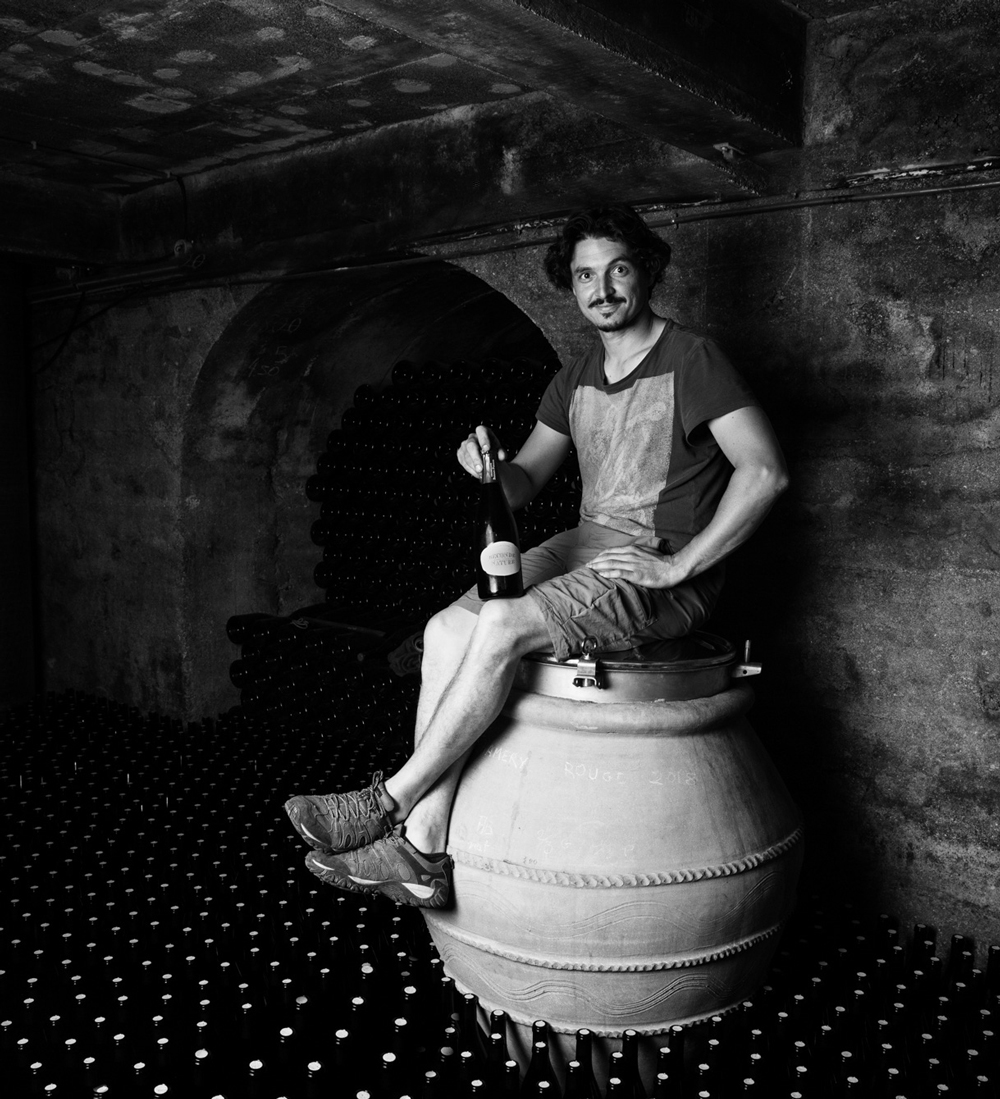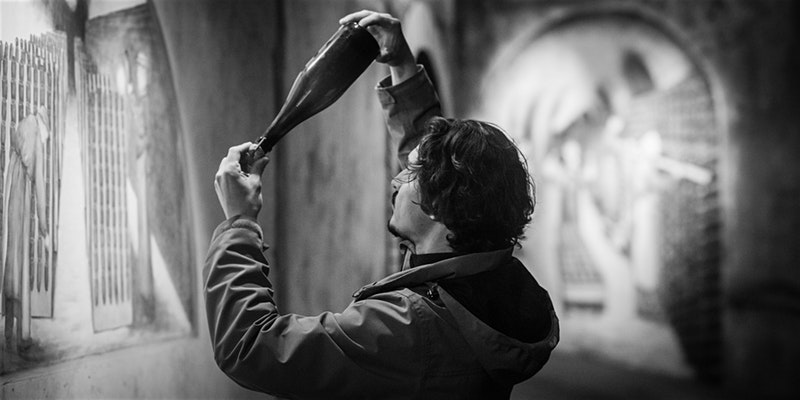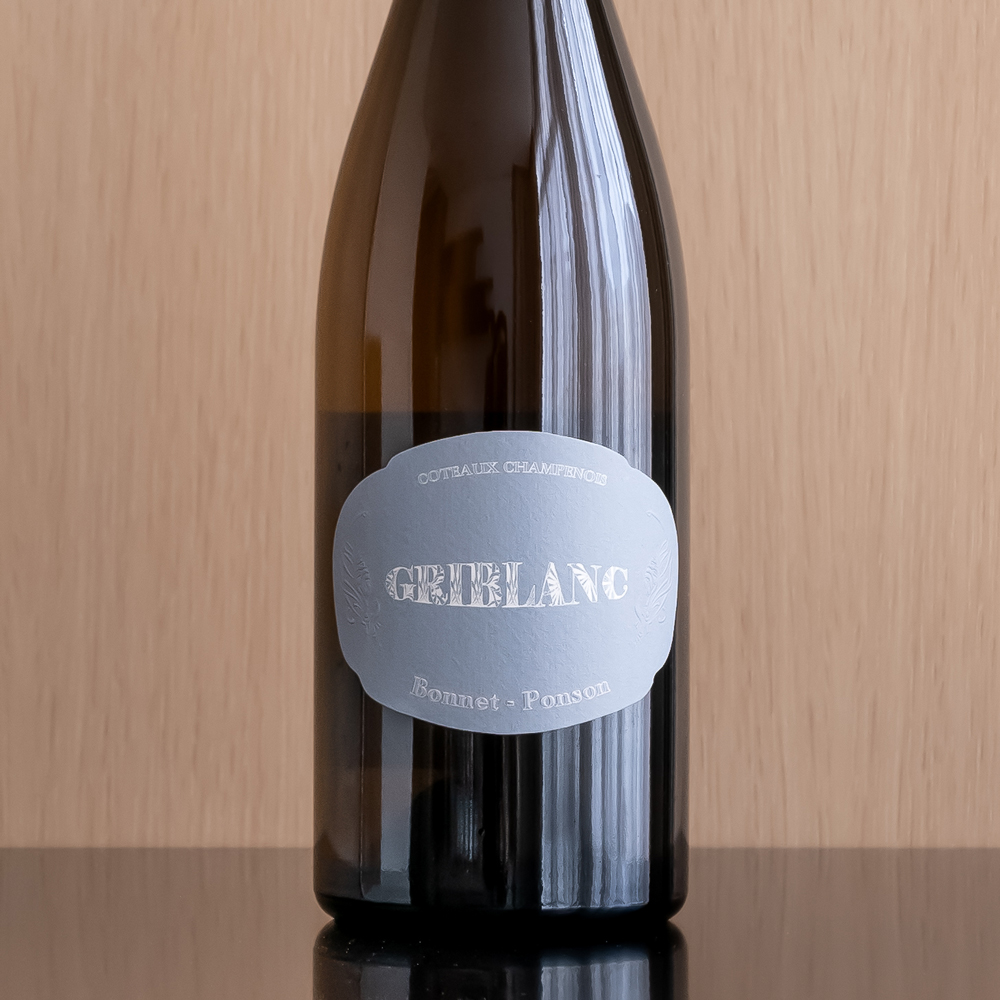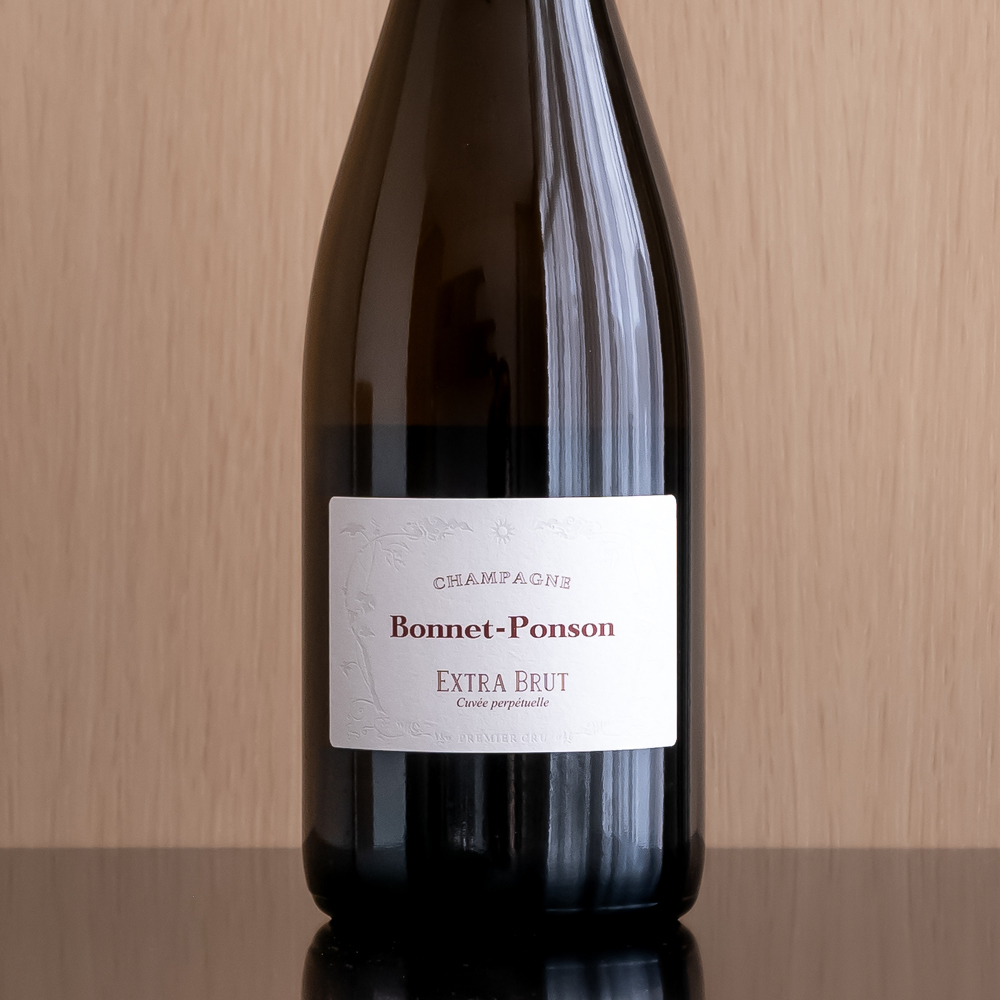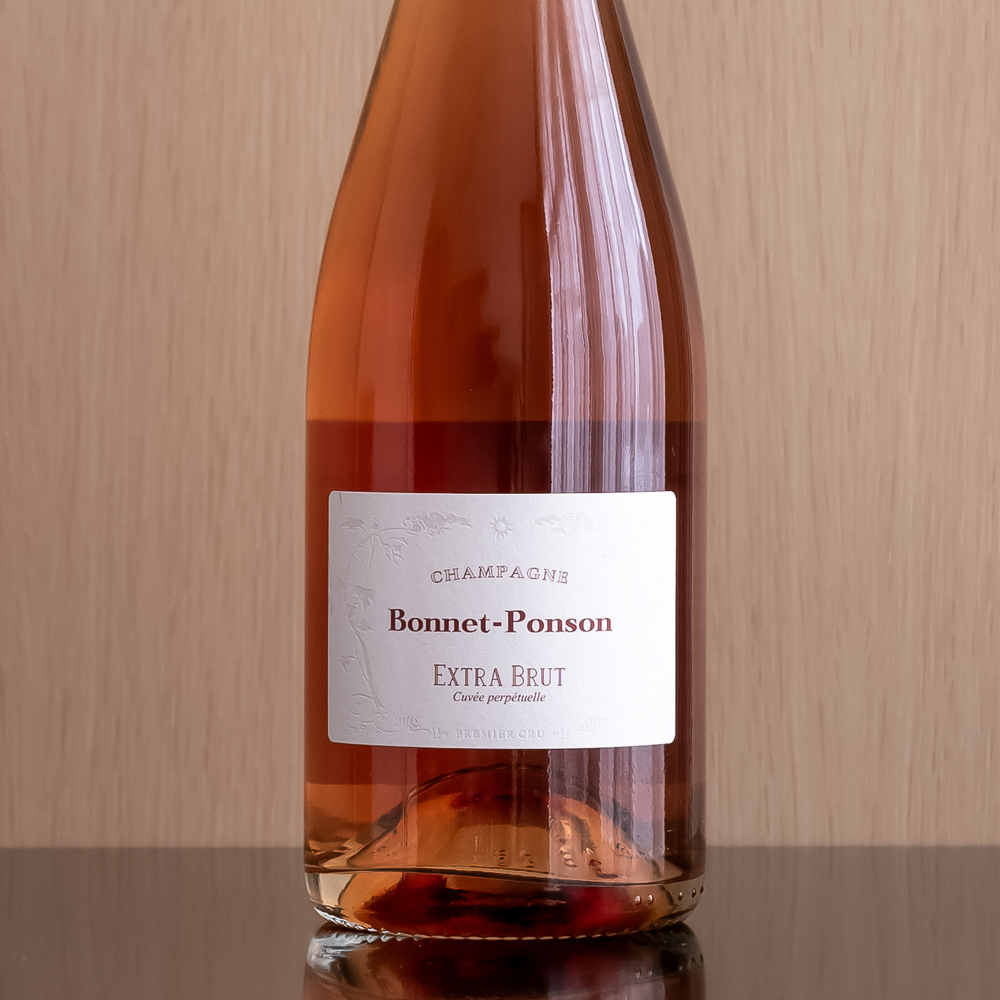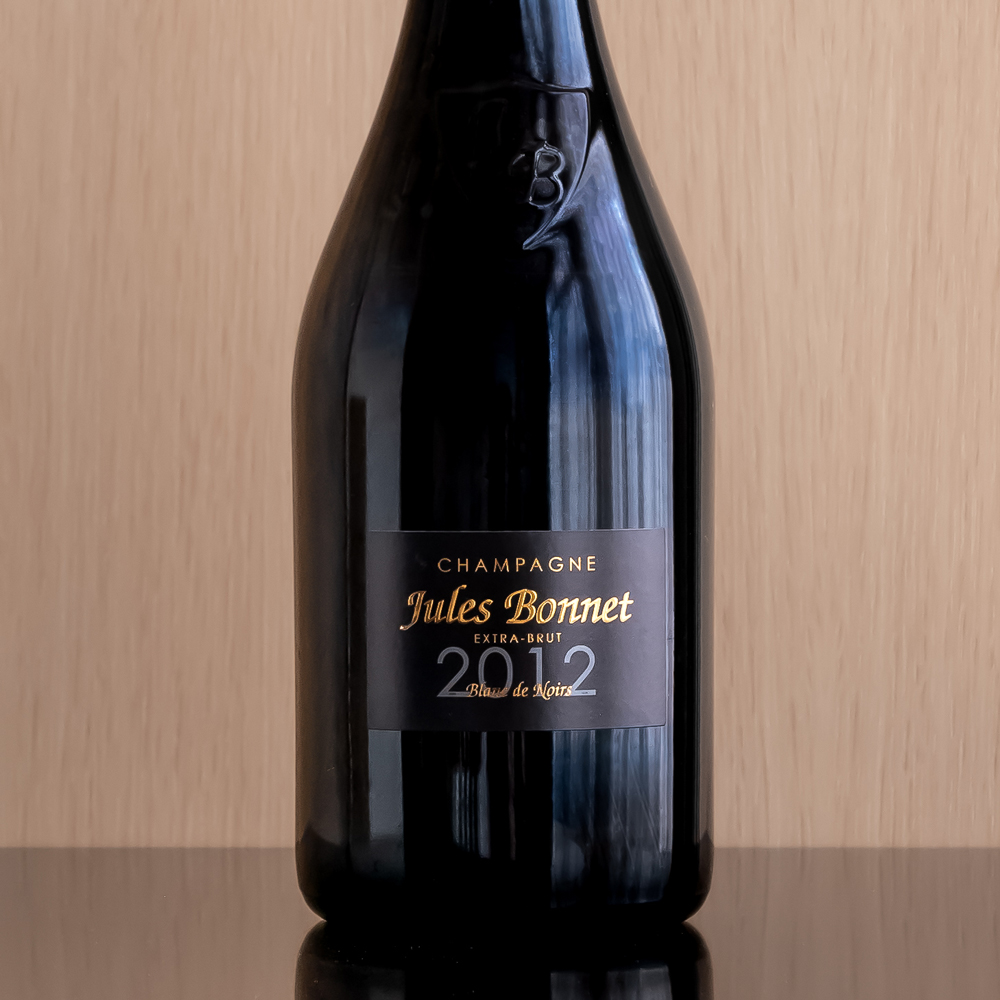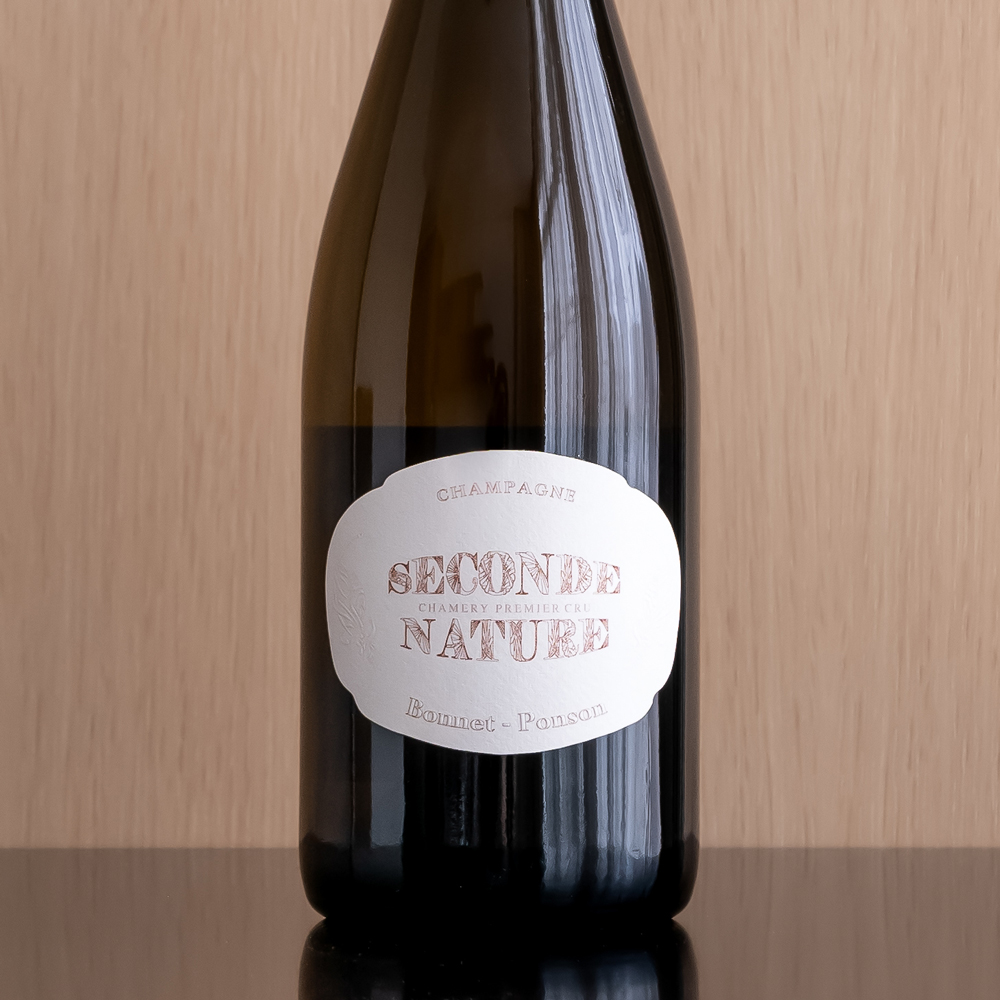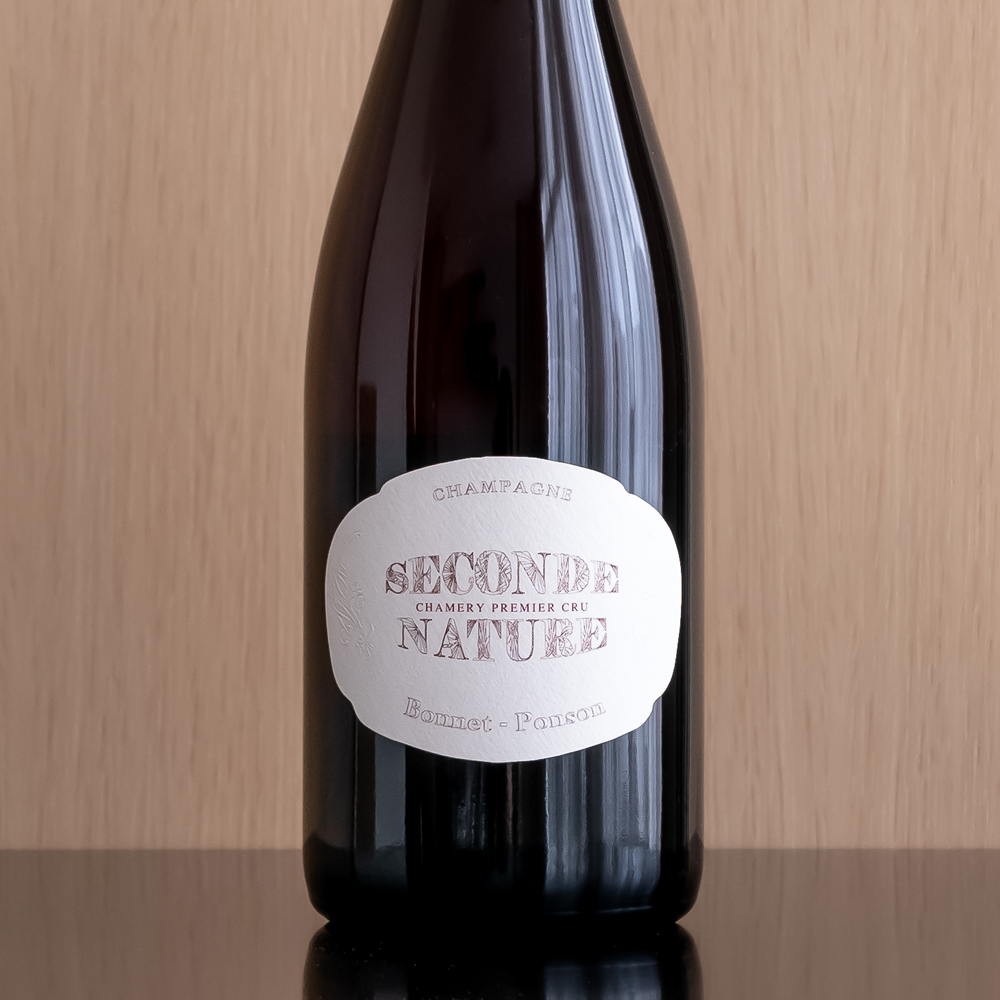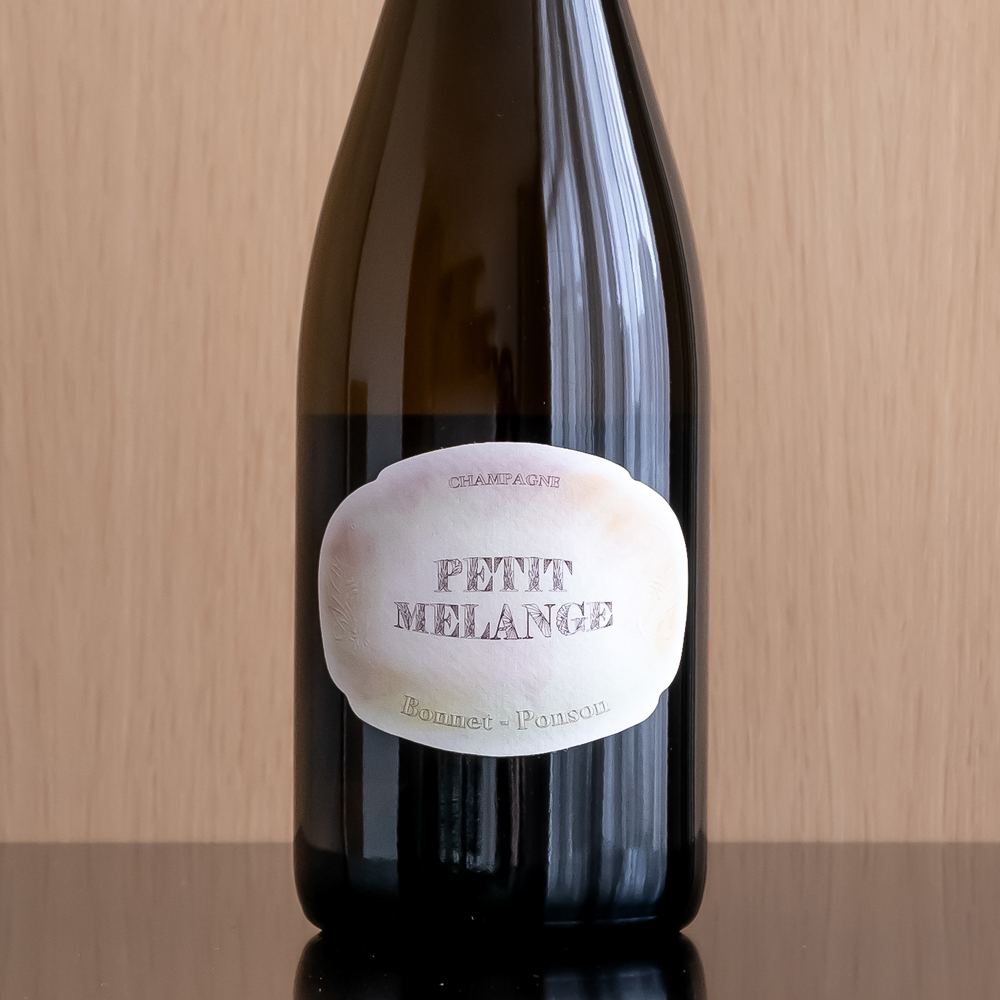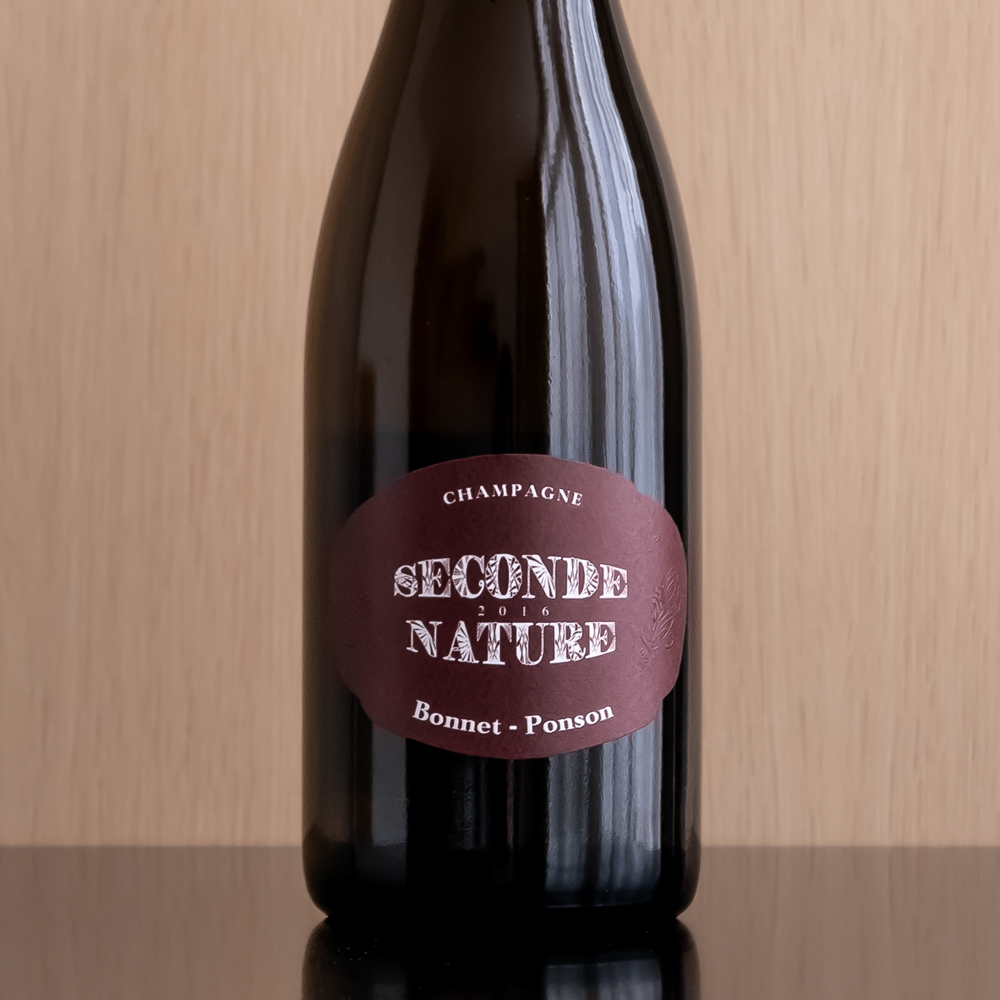|
Part of the new guard of progressive young
vignerons, Cyril Bonnet
makes champagnes that are exceedingly vibrant,
pure, and defined. These are wines with energy and
verve in spades, serving as a brilliant foil to
their tremendous complexity and length. They’re
exciting, honest expressions of their prestigious
terroirs, and a testament to the spirit of
innovation Cyril has brought to his historic
family domaine.
|
And perhaps it’s not so surprising that Cyril is a force
for change – after all, it seems he was born into a
determined and tenacious family of mavericks.
The Bonnet family has been crafting champagne in Chamery
for over 150 years, a legacy kick-started by Grégoire
Bonnet. When Grégoire settled in this small Montagne de
Reims village in the mid-19th century, he was among the
first recoltants manipulants (grower-producers)
in the area. While other farmers sold their fruit to the
negociants, he made his own wines from grapes from his own
fields.
When Grégoire’s son Jules wanted to increase production
capacity after expanding his vineyard holdings, he brought
in and installed a gigantic 5500 kg wooden press powered
by human strength alone (this was before electricity
reached the village, so pressing was very much a group
effort). And when the family cellar was completely
destroyed during a Second World War bombardment, Jules’
son Raoul picked up the pieces, moved to another location
in the village, and started over with construction of a
new cellar – one they still use to this day.
Over time, the estate has grown through acquisition and
inheritance of new parcels. The sixth generation to helm
this family domaine, Cyril now farms a little over 10
hectares, spread over 50 individual plots across four
villages of the Montagne de Reims. These include the premiers
crus Chamery, Vrigny, and Coulommes-la-Montagne,
located in the “Petite Montagne de Reims” (in the
northwestern part of the Montagne) and the grand cru
Verzenay.
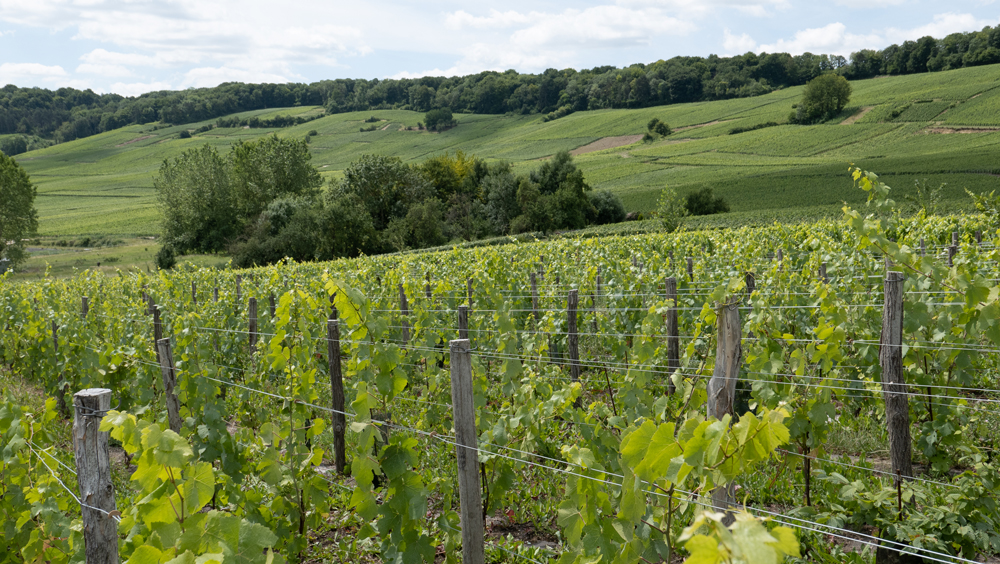
The domaine's vineyards
|
The vines are between 35 to 80 years old, farmed
organically since 2013, and certified organic in 2016 –
which makes them a rarity in Champagne. They comprise
roughly one-third each of Pinot Noir, Pinot Meunier, and
Chardonnay, along with a 0.20-ha sliver of Petit Meslier
that Cyril planted in 2016. The latter is an ancient grape
variety that has almost disappeared in Champagne, but
which a handful of smaller producers are trying to
revitalize.
The domaine’s gradual ecological transformation began
when Cyril set sustainability as a condition for his
return home in 2013. At the time, he was honing his craft
as a winemaker in southwest France after completing his
studies in oenology. His family agreed, and once Cyril
joined the domaine, he immediately set about implementing
a number of key changes in the vineyard and cellar –
progressive ideas, but always with immense respect for his
father’s work and the domaine’s traditions.
We had the good fortune to spend a few hours with Cyril
this past July. His eyes lit up as he took us on a tour of
one of his converted organic vineyards, as he animatedly
pointed to and pulled up different plants he’s introduced
as part of his new biodiverse farming regime. The proof is
all there – a vineyard teeming with life, healthy and full
of vigour.
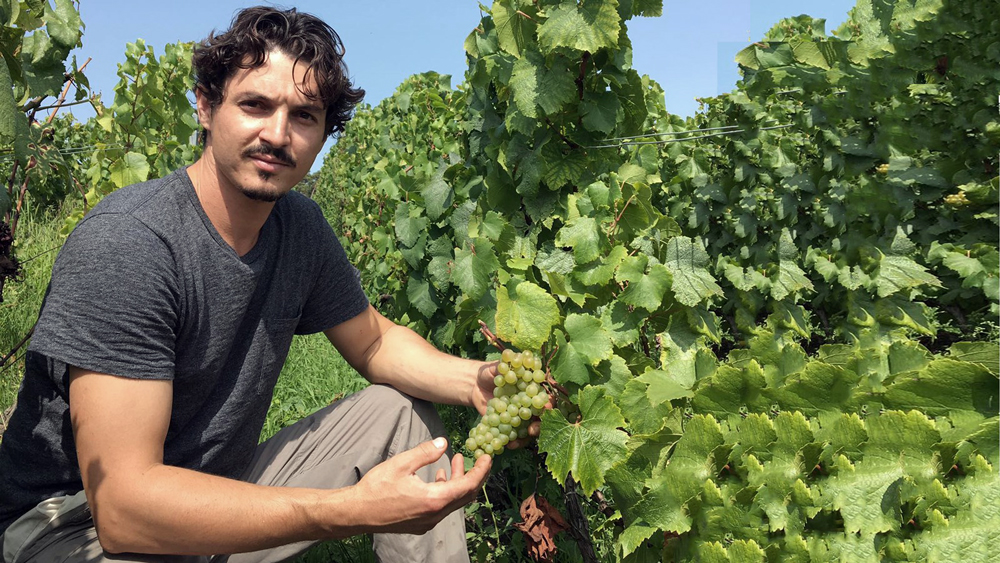
Cyril in the vineyard (photo:
Loegismose)
|
A true visionary, Cyril has big plans for a full move to
conservation agriculture and an agroforestry model, with
various plants to be grown in the vineyards for diversity,
food and herbal vineyard treatments. He’s planted cover
crops between the rows of vines, placed several trees in
the vineyards, and unusually, even planted herbs and
shrubs within the rows of vines.
In the cellar, Cyril is a proponent of low-intervention
winemaking (as one would expect). There, he favours the
use of a pied de cuve (the winemaking equivalent
of a sourdough starter) to quickly kickstart the
fermentation. This is a culture of natural yeasts from his
own grapes, harvested and propagated about a week in
advance. Without it, he believes the juice may sit for too
long, putting it at risk of oxidation.
Every year, 35 to 45 % of the estate’s new harvest joins
the vin de réserve for an extended ageing in the
cellar. This “taste memory”, initiated by Cyril’s
grandfather André 50 years ago, contains a small fraction
of every preceding vintage, blended together in a Solera
style method. It forms the base of their non-vintage Perpétuelle
cuvées, bringing complexity and maintaining consistency of
style over the years.
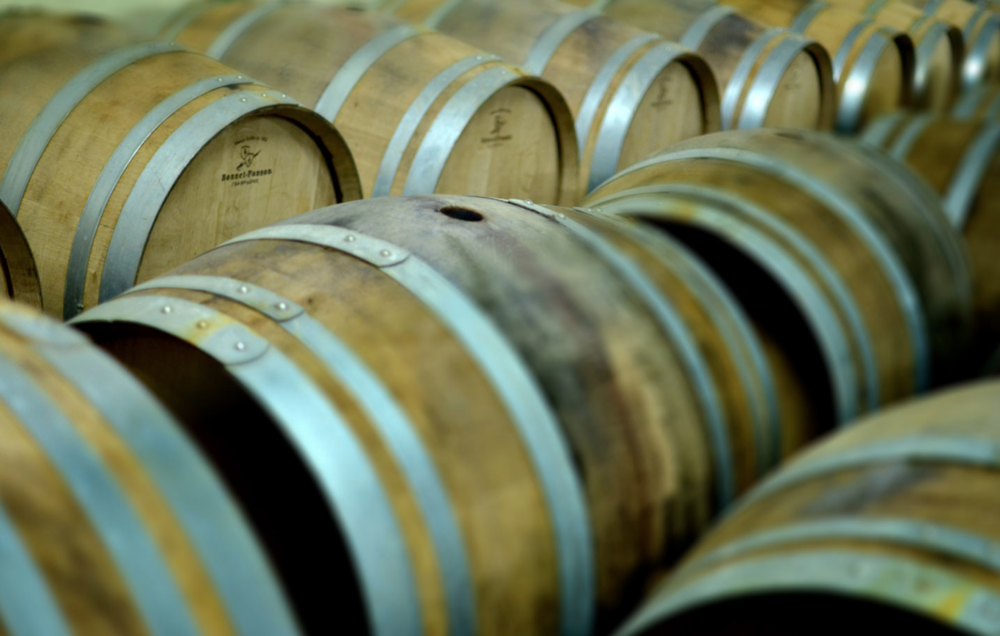
Barrels in the Bonnet-Ponson
cellar
|
Due to his adjustments in the vineyard and the cellar,
Cyril has been able to massively reduce dosage and sulphur
additions across the range. This includes the magnificent
old-vine vintage blanc de noirs Cuvée Jules Bonnet,
along with the Cuvée
Perpétuelle and Perpétuelle Rosé,
which, while made in a more classical style that honours
the traditions of the domaine, are all displaying
increasing purity and refinement with each release.
Meanwhile, some of his cuvées see no dosage and no
sulphur at all – these are his own unique additions to the
line-up: namely, the “true zero-zero” Seconde Nature and Petit Mélange bottlings,
and his pristine Coteaux
Champenois. These are wines of
ultimate purity, and beautiful representations of their
terroir.
Cyril continues to adjust and observe, and his
experiments include using a sandstone egg for
vinification, a vessel with qualities between clay and
ceramic. The Petit Mélange,
one of our favourite cuvées, was his first vinification
done in the egg. We can’t wait to see where Cyril takes
his domaine next.
| We’re honoured to bring you our debut
allocation of Champagne
Bonnet-Ponson. Poised to become Champagne’s
next superstar, Cyril has impressed us with his
ethos; but ultimately, it’s the pure quality of his
wines that has stolen our hearts. Full of character
and craftsmanship, and gaining in precision from
year to year, these are incredible champagnes right
across the board. |
This offer is valid until 9 November 2022. Some of the
wines have restrictive supplies, so please understand that
we may have to allocate them in order to ensure as
equitable a distribution as possible. Under allocation
rules, balanced orders (those that include a selection of
wines across the collection) will receive priority. Orders
will be processed subject to remaining availability and
final written confirmation. Full payment is required no
later than 7 days after confirmation invoice is sent in
order to confirm the purchase. All terms and conditions
apply.
|
